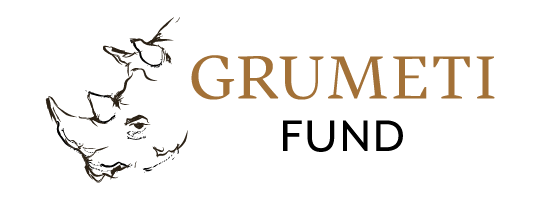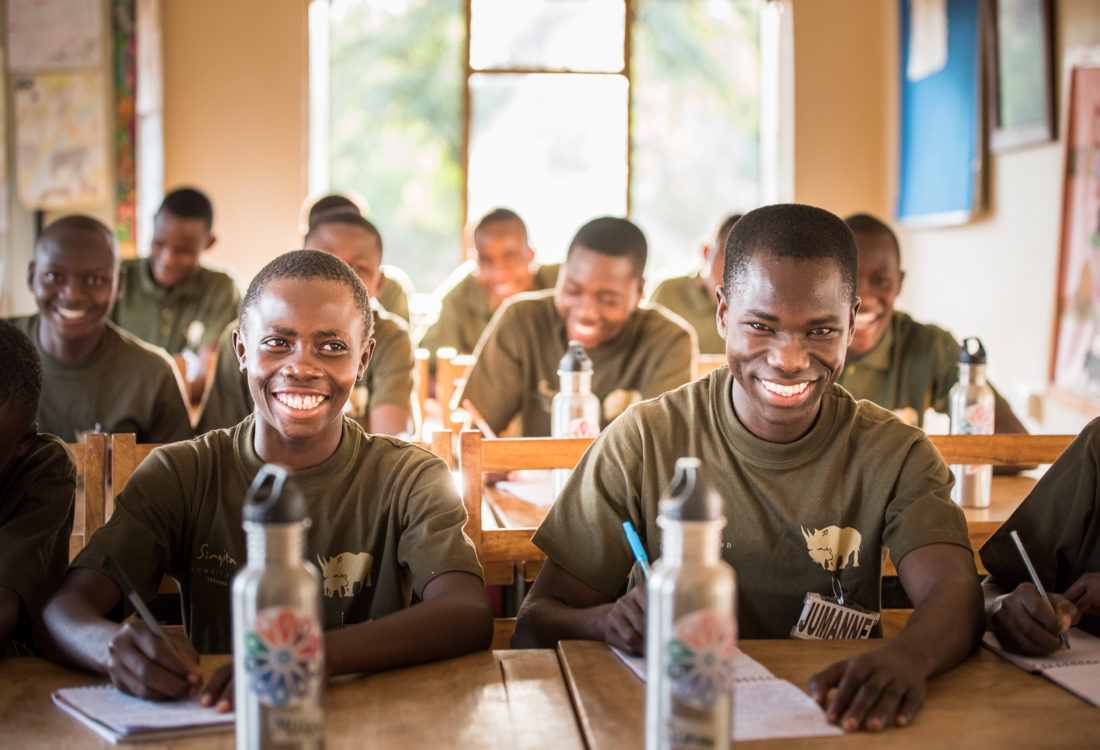Wild Wonderful World on the benefits of the Environmental Education Center
A Blog by Wild Wonderful World
It has been almost two weeks since we arrived in the Grumeti, an incredible reserve spanning 350,000 acres, situated in the western corridor of the great Serengeti ecosystem. We are here assisting the Grumeti Fund, a non profit organisation tasked with the protection and conservation of this vast area. Historically, uncontrolled hunting and poaching decimated the wildlife populations here, but with focused initiatives involving conservation management, innovative technology and collaboration with local communities, the fund has restored its natural function.

Whilst many issues threaten the delicate balance of wildlife in this area, none are more serious than human wildlife conflict and animal snaring. In 2017 alone, 1,197 snares were confiscated on the Grumeti concession, 26 of which were removed from animals. Innovative technology, well trained boots on the ground and a canine defence unit all work together to tackle the problem. With estimates of some 3 million snares outstanding in the wider Serengeti ecosystem however, it is not a problem that is going to disappear any time soon.

Perhaps the bigger issue still is human wildlife conflict. 80,000 people live along the Grumeti Reserve boundary, 90% of whom are dependent on subsistence crops. In a recent survey, 88-90% of those people stated elephants to be the biggest threat to their farming livelihood. With rapid growth in both human and cattle populations in Tanzania, the situation is only set to worsen.
It may be hard to comprehend, but many people living on the boundaries of national parks and game reserves such as the Grumeti, have never had the opportunity to enjoy the benefits of these areas of natural beauty. Instead, feelings of dislike are often associated with the wildlife within, as interactions with the animals are often limited to human wildlife conflict, with the loss of crops or livestock to elephants and predators resulting in negative feelings towards them.
There is no single answer or solution to the issue of human wildlife conflict and as such the Grumeti Fund have implemented a multi faceted response. Collaring problem animals and researching what induces them to raid farms; helping farmers protect their livelihoods; offering alternative incomes and employment opportunities through community development programs and deploying anti poaching units are all methods used in attempt to reduce the problem. The other, is education.

The Grumeti Fund’s Environmental Education Center (EEC) and their associated efforts to improve education in local communities aims to not only equip people with the knowledge and skills to pursue alternative careers to subsistence farming, but aims to educate them about an array of important conservation issues. Every week, a class of 12 secondary school students from local communities arrive at the EEC, located within the game reserve, for a week-long residential course. The course is aimed at exposing students to critical environmental issues but importantly to give them the opportunity to develop an enjoyment and value of nature. We joined them for a week of fun and learning, to find out just exactly how these conservation leaders of the future are nurtured and inspired.

To date, over 3000 students have passed through the EEC with another 1000 engaged in conservation clubs within local schools.
During each day of the course, topics such as water conservation, erosion, over grazing, wildlife conservation and waste management were covered in detail. More than just a lecture however, each of the topics included hands on experiments and field trips to not only reinforce theories but to demonstrate how many of the issues faced in their communities can be resolved. How better to teach the interconnections of all organisms in the ecosystem than bushwalk, seeing first-hand how each layer depends on the next – the zebras eating the grass and the dung beetles recycling the nutrients back into the soil.
Even the classroom is unconventional! Rows of desks, a white board and mounted smart board on the wall there may be, but that is as close as it gets to any form of classroom we’ve ever seen. For one, you can’t get into trouble for being distracted by the stunning wildlife that is on display 360 degrees around the building! On more than one occasion during the week, Grant and I sat totally absorbed watching Von der Decken’s Hornbills in the tree next to us looking for insects, their soft “puk-pukking” chatter making us smile. And each time, Teacher Laurian’s animated explanations of the topic at hand bought our attention swiftly back to the room.
Although environmental issues are a strong focus, the students are also exposed to the broader activities of the Grumeti Fund. Time is spent with the Anti-poaching and Law Enforcement Department and the Research and Monitoring team to find out how wildlife is both protected and monitored and a visit to a Singita lodge links to the tourism aspect of conservation. It is hoped that these inclusions not only develop their understanding of how game reserves benefit their communities, but also open their eyes to career opportunities available to them after school.
 Thank you to Grant and Michelle for the hard work and kind words.
Thank you to Grant and Michelle for the hard work and kind words.
To support the Grumeti Fund Environmental Education Center, click here.




